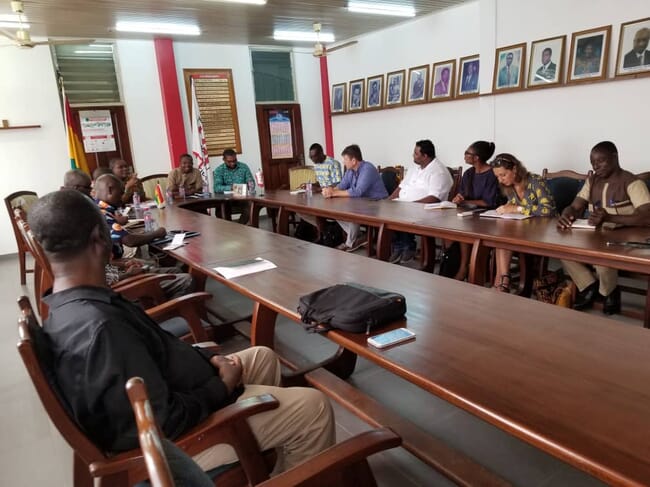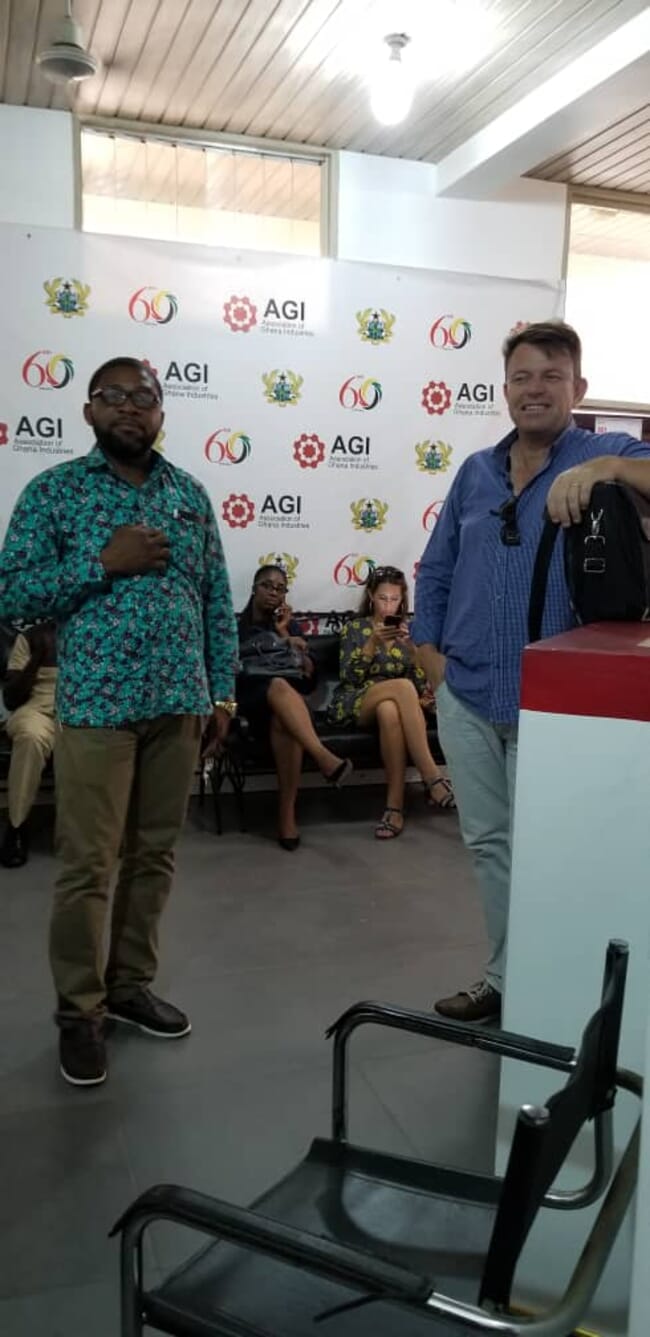The mass tilapia mortalities that have occurred on lake since the end of 2018 have led to the collapse of businesses, investment and employment. The team also discussed the recently signed African Continental Free Trade Agreement (AfCFTA) and its implications for Ghana’s aquaculture business. The purpose of the meeting was to enlist the support of the AGI in addressing issues facing the industry.

The delegation, which included tilapia farmers, as well as representatives of Raanan Fish Feed and vaccine suppliers, was led by Wisdom Abodakpi, chief country officer of Cycle Farms Ghana, producers of insect-based fish feed. Abodakpi said that the situation on the lake had affected the operations of many individuals and companies. “We have been seeking solutions for a while, and we believe it is time the AGI came in to help to save the industry, to guarantee food security, nutrition and employment for Ghanaians.”
Jacques Magnee, technical director of Raanan Fish Feed, said the company’s feed sales had dropped by 70 percent, mainly due to the problems on the lake.
“Apart from the financial losses to our company and the loss of jobs, our suppliers are facing problems. This is an industry with great potential. The problems must be resolved without delay,” he said.
George Williams, Organizer of the Akosombo Zone Fish Farmers Association, said that the current mortalities problem provides an opportunity to address the wider health problems on the lake. “The current problem is huge. Most of our 100+ members have suspended production. But we have had minor health issues since 2010. So my hope is that a holistic solution will be applied which will make the lake sound for aquaculture,” he said.

Joseph Gaglo, secretary of the Kpeve Tornu and Adibbo Tornu Fish Farmers’ Association, said that only 10 of the association’s 45 members are currently in operation, with knock-on effects.
“[the outbreak] has a major effect on the lives of the people in the communities along the lake. Many fishmongers, middlemen and small-scale input suppliers have been affected. Moreover, we need to take steps to protect the ecosystem from any potential harmful effects,” he observed.
Godfred Alimo, director of S Hoint Fish Farm and Hatchery, said that to restore the situation on the lake to normal, regulators must move beyond enforcing the directive on China Fujian – a Chinese-run farm that many have blamed for the spread of the diseases that have devasted the lake’s tilapia sotcks. He said that: “Quite a number of hatcheries are producing fish sourced from that company. Very little would be achieved if you remove the main source but leave other agents standing. To achieve good results, every trace of the problem must be removed’
The chief executive of the AGI, Seth Twum Akwaboa, expressed concern about the issues narrated by the delegation, and promised that the association would work with them to resolve their concerns. He said that, although the AGI often stays out of the headlines, its behind-the-scenes advocacy activities have often achieved results. He assured them that whilst the AfCFTA agreement had been signed, it would take quite a number of processes to become effective. He suggested that operators in the aquaculture industry should develop appropriate strategies to become competitive when it takes full effect.



